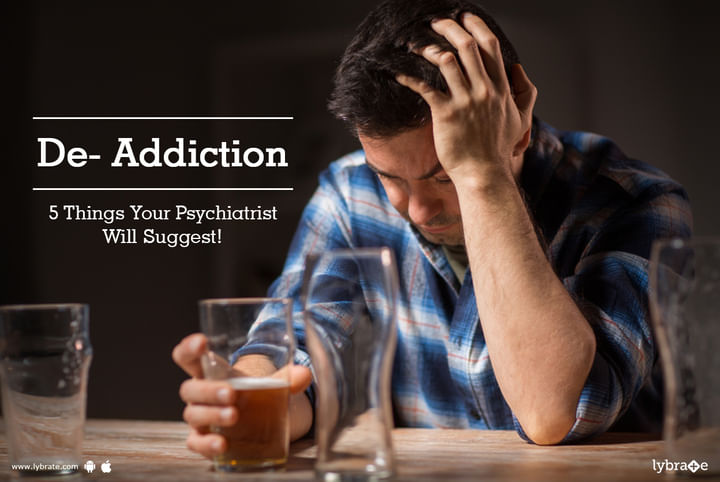Get the App
For Doctors
Login/Sign-up
Last Updated: Jan 10, 2023
BookMark
Report
De- Addiction - 5 Things Your Psychiatrist Will Suggest!
Reducing, limiting or stopping the intake of alcohol can be a bumpy road. Impossible as it may seem, it is possible to recover from alcoholism with proper care and support. Recovery being a gradual process, denial often plays a spoilsport. The first step is to accept that alcohol abuse is occurring and take the necessary steps to remedy it.
Here is a list of a few steps that the psychiatrist will suggest to get rid of alcoholism:
- Doing a cost-benefit analysis: The first thing a psychologist suggest is to do a cost-benefit analysis. For instance, the benefits of drinking could be having fun, a possible way to relax, forgetting about the problem at hand etc. On the other hand, the benefits of not drinking could be a better state of physical and mental well-being, improving relationships, having more time and energy to lead a healthy life etc. Similarly, the cost of drinking could be problems in relationships, depression, anxiousness, poor performance at work etc. The cost of not drinking, on the other hand, could be finding other solutions to deal with problems, losing drinking buddies, taking up more responsibilities etc.
- Setting goals: The next step is to set goals pertaining to giving up alcohol for good. It is important to be realistic while doing this. The goal should be specific and precise in nature. For instance, the goal could be writing the date of quitting alcohol in a personal diary or something such as drinking a certain amount of alcohol during weekdays and weekends etc. It is important to announce or share the goal with dear ones. It helps to reduce temptations and avoid bad influences.
- Cutting back drinking or quitting at one go: The next step is to work towards the goal. Once the goal is set, it must be adhered to. Keeping a personal diary to measure everyday drinking goes a long way in quantifying and ultimately limiting it. Instead of going out and drinking with buddies, drinking at home could help curb alcohol intake. Drinking slowly is also helpful when trying to quit alcohol.
- Get sober safely: While some people can give up drinking over-night, some need medical and psychological assistance to quit. Either way, it makes sense to seek expert advice while quitting alcohol. Suddenly quitting alcohol can result in withdrawal symptoms. Nausea, headache, anxiety, sweating, shaking, elevated heartbeat etc. are some of the withdrawal symptoms. It is possible to counter these symptoms medically.
- Change in lifestyle: While the body gets used to an absence of alcohol, it is necessary that certain lifestyle changes are made. For instance, daily exercise, building a good support network, developing a new interest, eating healthy food, meditation etc. helps a person to quickly get used to life without alcohol.



+1.svg)
